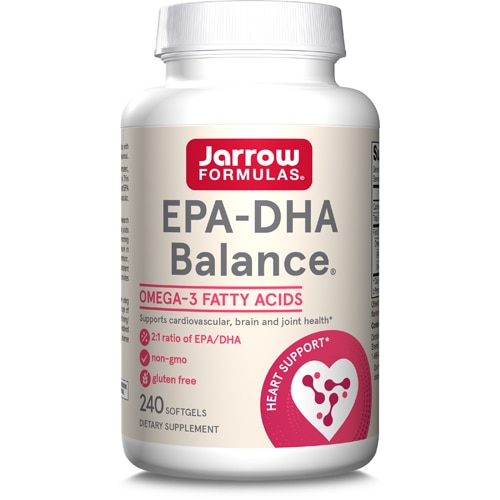The importance of omega-3s often dominates the headlines—and thank goodness for that: Foods such as salmon, mackerel and walnuts are crucial ingredients for optimal health, as their high density of omega-3 essential fatty acids comes with a host of health benefits. Among them? Support for heart and bone health, relief from anxiety and depression, mood support and support for cognitive function.†
And yet, getting adequate omega-3s solely from food can be a tough task for some, particularly for those who are on a self-imposed or medically-advised restrictive diet. At the same time, knowing which omega-3 supplement to take can present its own set of challenges, conjuring for some the “fish burps” that often arrive with cheaply-coated fish oil supplements and a black hole of conflicting information for others.
With that in mind, here’s the lowdown on how to choose an omega-3 supplement so that you can nourish yourself wisely.
1. Read up
One of the first steps towards taking the right omega-3 supplement is learning how to decipher what, exactly, you will be taking. EPA and DHA are the two most common and vital omega-3s; to that end, you should look at the exact amount the supplement contains, which is generally expressed in milligrams. (To note: The International Society for the Study of Fatty Acids and Lipids recommends 650 milligrams of EPA and DHA for adults.)
However, these amounts are rarely clearly listed on the bottle itself. Instead, you’ll have to add up the amounts of EPA and DHA to determine its actual dose. As U.S. News & World Report points out, “fish oil marketers often mislead consumers by claiming a high number of milligrams of total fish oil on the front label—such as “1,200 milligrams fish oil.” But this refers to the amount of the oil itself, not the actual omega-3 content.” To phrase it differently, do your research.
2. Go with a reputable brand
As U.S. News & World Report also reports, “Fish oils are no different than any other laxly-regulated dietary supplement category, prone to inaccurate label claims and contamination.” Indeed, “recent testing of 30 leading fish oil products by an independent lab showed that the average omega-3 content varied by 24 percent compared to its label claim, though individual products ranged from having 50 percent less to 90 percent more than promised.” In other words, select fish oil products that are labeled with the NSF International, US Pharmacopeia, Underwriters Laboratory, or Consumer Lab seal, as these confirm the veracity of the label’s ingredients and ensure that the product doesn’t contain any potentially deleterious ingredients. Which brings us to our next point…
3. Only select products that have been independently tested
Third-party certification on the supplement bottle—from, for example, BSCG Drug Free or USP Verified—confirm that the product has been independently tested for purity, freshness and ingredients. They also verify that the manufacturing and storage facilities comply with Good Manufacturing Practice (GMP) requirements.
4. Look for enteric coating
Modern consumers are in luck, as omega-3s are now available in a number of formulas, from softgels to capsules and gummies. Should you go with a capsule, you may want to ensure they’re enveloped in an enteric coating—a polymer barrier that helps keep the capsule from disintegrating until it reaches your small intestines, thus preventing those abovementioned “fish burps” that can turn away even the most diligent and health-conscious among us.
5. Aim for sustainability
Most omega-3 supplements are derived from fish, which can feel like a Catch-22 in our era of overfishing. As such, search for products that are certified by organizations such as the Environmental Defense Fund or the Marine Stewardship Council, which uses a high standard to determine if a fishery is sustainable and properly-managed.
6. Give the supplement a good old-fashioned nose test
Going with a reputable brand that utilizes sustainability practices and whose product has been third-party tested ought to guarantee freshness. And yet, omega-3 supplements comprised of fish oil are subject to rancidness due to oxidation. Rancid oils not only taste super-unpleasant, but they can also be harmful to your body. If the supplement tastes or smells bad or fishy (you’ll know), discard it or return it to the store from which it was purchased. And when you do find a supplement that meets your requirements, keep its lid tightly sealed, store it in the refrigerator and keep an eye on its expiration date.
7. Know that vegans can supplement with omega-3s too
Happen to be a vegan? Do know that omega-3 supplements are available in fish oil-free forms. Vegan products, such as Deva Vegan Omega-3 DHA, is derived from microalgae and does not contain fish, shellfish, egg or dairy.
And whichever product you ultimately choose, also know that the best way to get your omega-3s is directly from your diet. Spinach, Brussel sprouts, broccoli, flaxseeds, even basil—options abound for filling your plate with this oh-so-essential nutrient.
†These statements have not been approved by the Food and Drug Administration. These products are not intended to diagnose, treat, cure or prevent disease.




